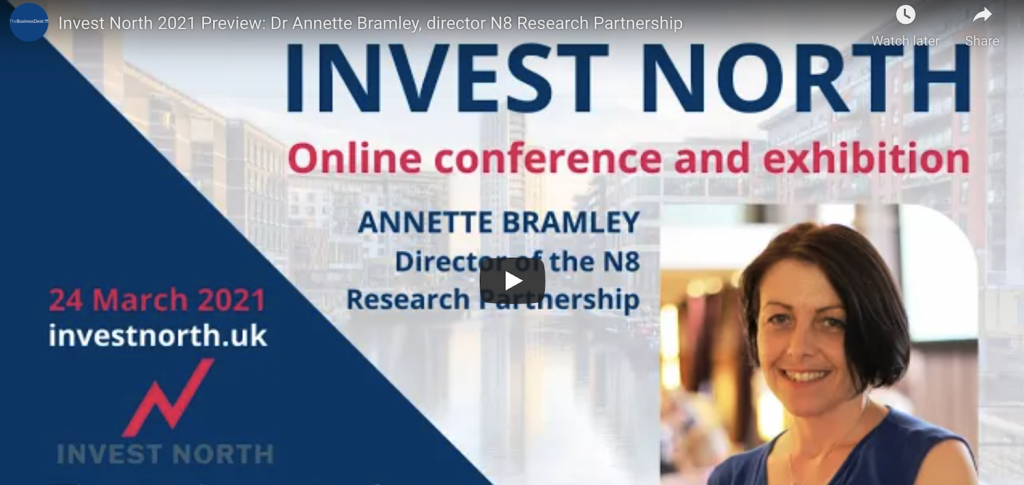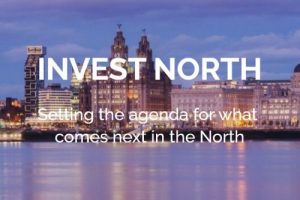Gearing up for Generation Greta

Dr Annette Bramley, director, N8 Research Partnership
To death and taxes we can add some new certainties in life. We need to reduce our carbon footprint. We need to do it now. And the process of doing so will create winners and losers.
The publication of the Dasgupta Review earlier this year, commissioned by the UK government, set out our collective and catastrophic failure to engage with nature sustainably.
The review made the case for transformative action and speeding up decarbonising how we live and work. It followed the Prime Minister launching the UK’s own ten point green industrial revolution plan to accelerate our path towards net zero, announced last November, and President Joe Biden, within hours of his inauguration in January, committing the United State to re-entering the Paris Agreement.
The need to get to grips with a greener economy is not a hazy set of imperatives for some time in the future. It plays out every day now in huge decisions that affect the future of the North.
To take the example of the automotive sector, it’s clear that having the production facilities and necessary skills base to manufacture electric vehicles is already central to the question of what cars get built where – and which communities will benefit directly in terms of jobs and opportunities for the local supply chain. That reality is evident in the negotiations over the future of the Vauxhall plant at Ellesmere Port and the scenario will be repeated elsewhere.
It’s a heavily industrialised part of the North and while the future of the facility has been thrown into doubt we have also seen a £600m investment announced within sight of it – with plans revealed to turn waste from the Stanlow oil refinery into low carbon aviation fuel. Essar Oil (UK) Ltd announced the proposals to create an innovative bio-refinery which will see hundreds of thousands of tonnes of waste that would have been destined for landfill or incineration will be processed into a sustainable fuel source.
The forward-looking companies based in the North, along with our universities, have an opportunity to get ahead of the market and come up with innovative responses to the low carbon challenge. In doing so, they will unlock the economic growth potential and jobs, especially in areas such as clean tech and carbon capture.
The organisation I represent, the N8 Research Partnership, is a strategic collaboration between the universities of Durham, Lancaster, Leeds, Liverpool, Manchester, Newcastle, Sheffield, and York. We work together to maximise the impact of the North’s research base to enable business innovation and societal transformation. N8 is celebrating its 15th birthday this year. It may be the case that more has happened in the last 12 months to foster the development of a greener economy than in all the previous year’s put together and that the process of change will be driven even harder by the fact the UK is hosting COP26 in November.
I draw great encouragement from the high degree of connectivity and joined up thinking in the North. We have, for example, worked closely with the Northern Powerhouse Partnership (NPP) in lobbying policymakers to support exemplar projects here that will drive the UK’s green future and help deliver the aims of the eco-friendly plan.
Those exemplar projects include our own Net Zero North (NzN), which will connect the Northern Powerhouse’s science and research capabilities, skills providers and businesses to forge a green recovery from COVID-19.
Three parallel, pan-Northern projects within NzN – Grow Smarter, Sustainable Hydrogen Economy and Skills and Productivity – will accelerate economic growth by creating new jobs in the green economy and upskilling the workforces in economically-challenged towns, cities and rural and coastal locations, supporting firms to innovate and adopt low carbon business models while creating large numbers of meaningful employment opportunities.
The Skills and Productivity element of NzN will see the creation of a green-skills ladder promoting upskilling of the Northern workforce for a sustainable and resource-efficient society. The NzN Skills Alliance will see the establishment of skills hubs in Teesside – Sustainable Hydrogen Economy – and Eden Project North – Grow Smarter.
Eden Project North has been proposed as a year-round destination that would combine indoor and outdoor experiences, connecting people with the internationally-significant natural environment of Morecambe Bay.
We’ve also seen the government launch a new taskforce to support the creation of two million green jobs by 2030. Among the top priorities of the Green Jobs Taskforce will be to ensure the UK has the skills to build back greener from the coronavirus crisis and develop a long term skills plan for delivering net zero.
Research conducted on behalf of the Local Government Association suggests some 700,000 new jobs in low-carbon sectors could be created by 2030 – and more than a million by 2050. About half will be in clean electricity generation, a fifth will be involved in installing energy efficiency products such as insulation, while 19% will be in providing low carbon services such as finance. A further 14% of the jobs will relate to the manufacture of low-emission vehicles and infrastructure.
Making sure we have the right talent base to deliver change is a huge priority. There are skills gaps in different parts of the economy but for a generation that expects purpose and not just profits, green jobs will be highly attractive and can ultimately give us the new ideas, innovations and solutions that will allow us to be the change we all want to see.
On Wednesday more than 500 people are coming together to set the agenda for what comes next in the North – and we want you to join us too.
Invest North is a virtual one-day conference curated by TheBusinessDesk.com that is taking place on March 24.
The day will be packed with insights that can sharpen your thinking and inform your strategy. There are more than 60 fantastic speakers from business, politics and the public sector, who lead and influence the North’s economy.
Join us and…
…understand the ambitions and plans for the North
…hear about the opportunities that could benefit your business in the post-pandemic recovery
…network with hundreds of other businesses and organisations that are driving the North’s economy
…be informed and inspired about what lies ahead
Find out more and book your place at www.investnorth.uk










